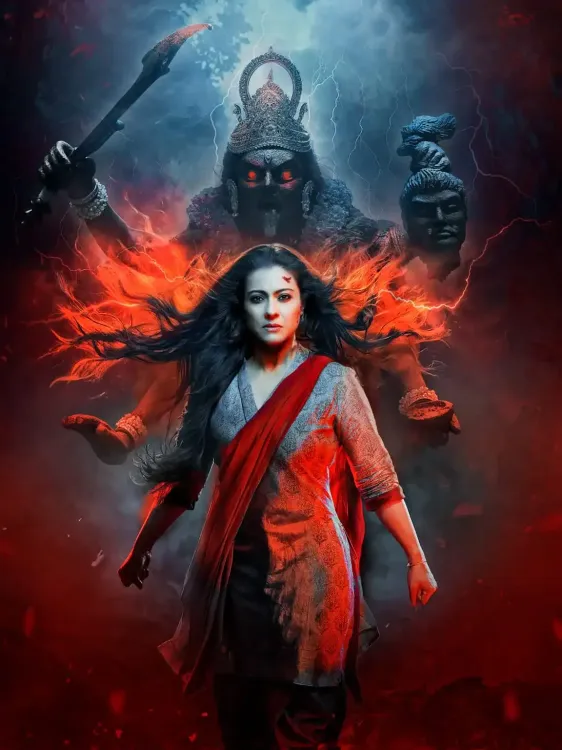Does Kajol's 'Maa' Redefine the Mytho-Horror Genre?

Synopsis
Key Takeaways
- Unique genre fusion: Blends horror and mythology.
- Strong performances: Kajol delivers an unforgettable portrayal.
- Visual excellence: Impressive VFX and sound design.
- Emotional depth: Explores maternal love and divine intervention.
- Plot twists: Captivating narrative with unexpected turns.
Rating: (4 stars), Cast: Kajol, Ronit Roy, Indraneil Sengupta, and Kherin Sharma. Director: Vishal Furia.
Breaking new ground in the mytho-horror genre, MAA — crafted by the creators of Shaitaan — makes its theatrical debut today, presenting a thrilling fusion of terror, mythology, and profound emotions. Under the direction of Vishal Furia and featuring Kajol in an unforgettable role, this film ventures into unexplored realms of mainstream Indian cinema.
Set against a modern backdrop where ancient powers awaken, MAA narrates the tale of Ambika, a mother whose steadfast love morphs into divine fury when her child faces danger. Kajol delivers an outstanding portrayal of Ambika, embodying a character that is fierce, emotionally rich, and spiritually intense. This performance stands out as her most formidable — both tender and wrathful, deeply anchored in maternal instinct and mythological vigor.
What distinguishes MAA is its ability to blend mythology with horror without resorting to clichéd jump-scares. Rather, it delves into the timeless struggle between faith and malevolence, reinterpreting the legendary conflict of Kali vs. Raktabeej within a contemporary framework. The film maintains a delicate equilibrium — remaining emotionally resonant while delivering supernatural excitement.
The film’s visuals and auditory experience are exceptional, featuring impressive VFX and an immersive sound design that elevate the mythological scope. One of the film’s highlights is the “Kali Shakti” song, which marks the triumphant return of legendary singer Usha Uthup to Hindi playback. The song — powerful, spiritual, and cinematic — leaves a lasting impression and is a genuine highlight on the big screen.
Crafted by Saiwyn Quadras, the screenplay is taut and consistently captivating. Furia’s direction exemplifies a profound mastery of the genre, raising the narrative beyond mere spectacle to something that resonates on a deeper level. Just when you think the narrative has concluded, the filmmakers deliver a staggering twist that leaves viewers astounded and eager for more.
MAA transcends the realm of conventional cinema — it’s an emotionally charged, mythologically rich, and visually stunning journey. A rare fusion of horror and heartfelt storytelling, it establishes a new standard for Indian genre filmmaking.









